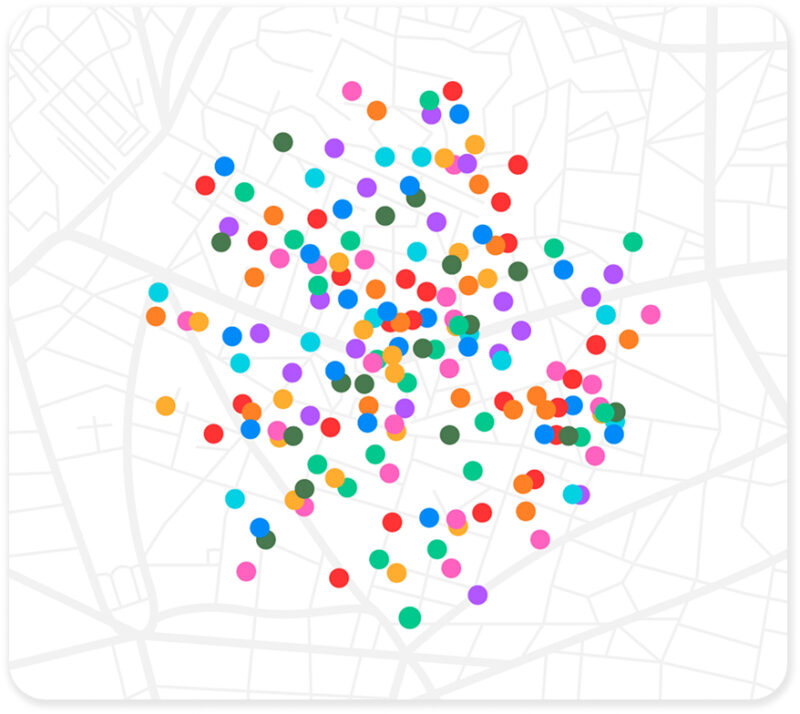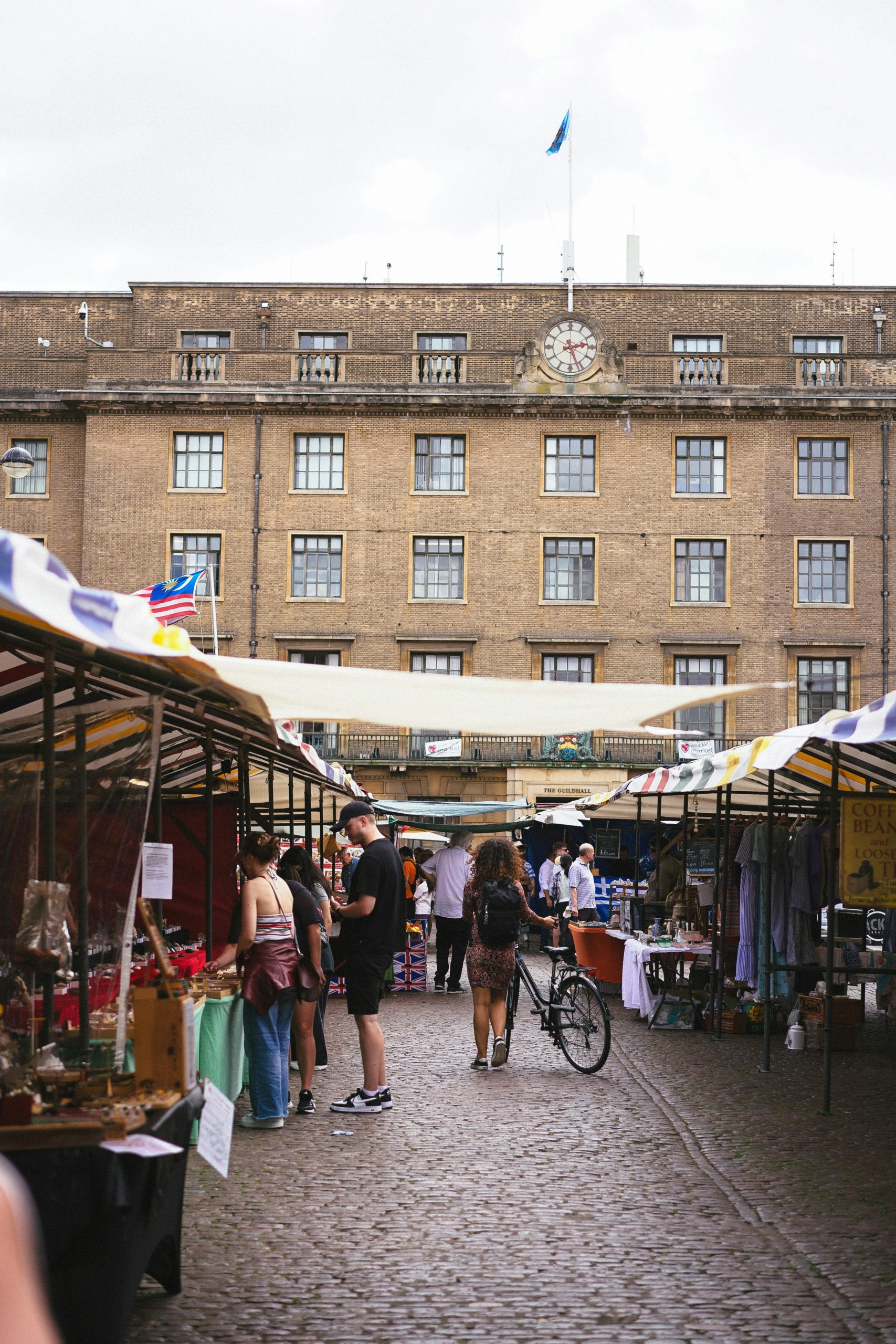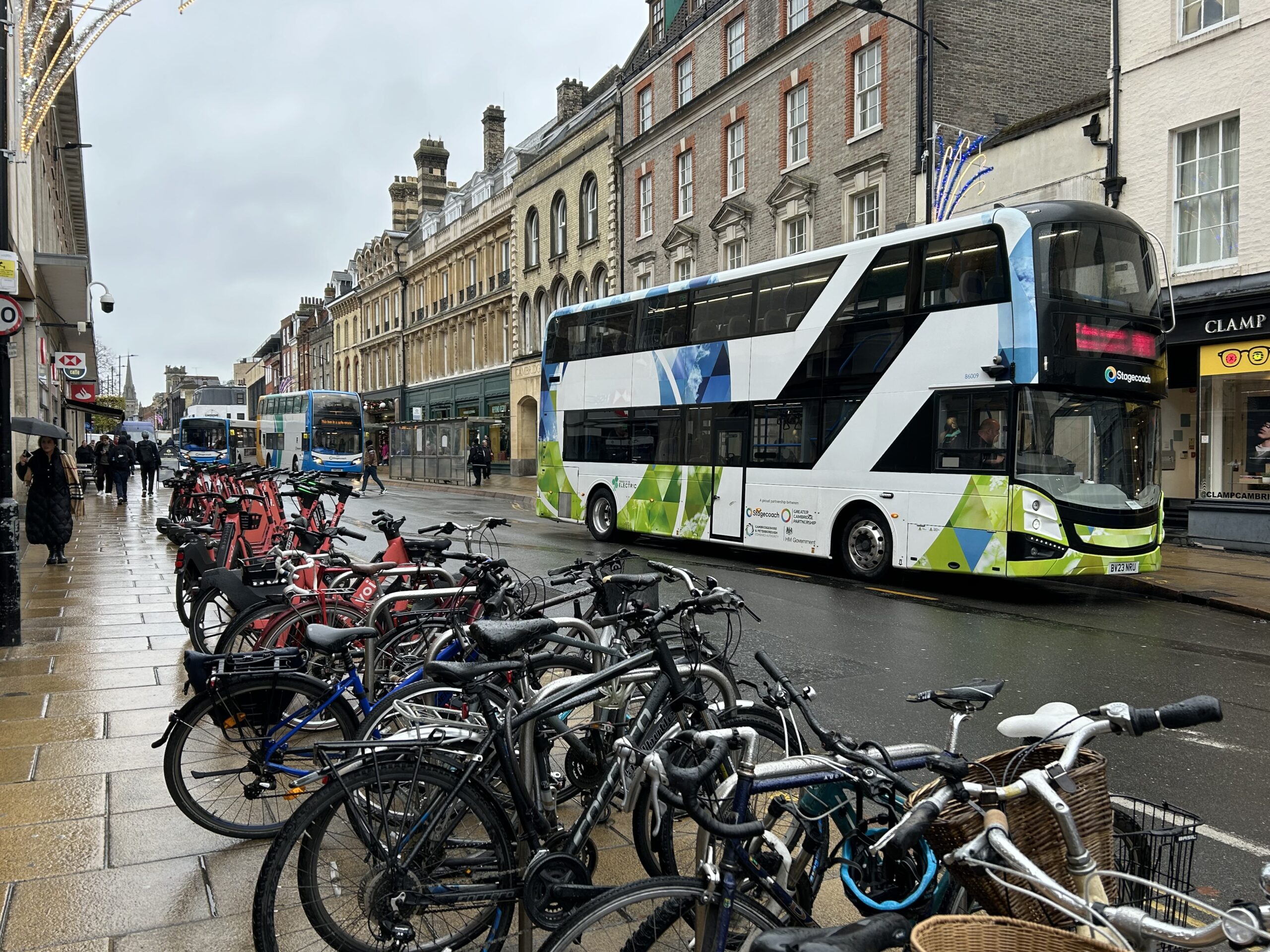New research from the Growing Together Alliance and the Bennett Institute for Public Policy will explore the interrelationships between regional economic ‘clusters’
Government policy is struggling to grow the economy nationwide or tackle unacceptable regional inequalities
Economic development policy in the UK is characterised by a high degree of churn. Between 2017 and 2022, three different Prime Ministers announced four separate economic development strategies in just five years.[1] Longstanding inconsistency in national policy has knock-on effects at the regional and local levels, undermining business and public sector confidence and inhibiting long-term, sustainable planning.
The result has been sluggish economic growth and the widening of entrenched regional inequalities.[2] [3] While some regions get left behind, areas like Cambridge are overheating, with rising pressure on housing, transport, utilities and public services and significant inequalities in income, educational attainment, and life expectancy.[4]
A long-term economic development strategy is needed, built on an understanding of the interconnections between regional economies
Tackling the problems of regional economic growth is not easy, but one often overlooked strand of research is understanding the interconnections between regional economic clusters.
“… [Levelling Up] tends to treat local economies (be these cities, towns or local areas) as if they are isolated islands, rather than complex and partly open systems which form nodes in wider interconnected networks”
Martin et al., 2022 [5]
Regional economic growth is not a zero-sum game, and by building a better understanding of the interconnectivities between our local economies we can better understand how to grow more inclusively for the whole country.
This could then inform a policy approach that seeks to maximise these connections, leveraging the success of ‘steaming ahead’[6] places like Cambridge. This would help to add a greater degree of local insight and depth to ‘Levelling Up’, while maintaining the goal of ‘growing the economic pie, everywhere and for everyone’, which is also echoed in Labour’s recently announced plans to ‘Power Up’ in ‘every corner of the country’.[7] [8]
The importance of inclusive growth is acknowledged across the Cambridge ecosystem, as Tabitha Goldstaub from Innovate Cambridge explains:
“Innovate Cambridge has recognised this need for an increasingly outward-looking Cambridge and is working with Cambridge Ahead to support a new partnership between Cambridge and Manchester with shared commitment from both cities to an inclusive innovation-led growth agenda, leveraging universities, business and political leadership.”
Tabitha Goldstaub, Innovate Cambridge
We already have some understanding of the role of Cambridge within a wider system of regional economic clusters
We can get some insight into Cambridge’s relationship with other regions through existing public data, such as the UKRI’s database which shows projects funded by Innovate UK. These data show not only the hugely important role that Cambridge-based organisations play in innovation but also the extensive collaboration between regions.
Between 2010-11 and 2022-23, 1,976 projects in the UKRI Innovate UK database involved a partner organisation from Greater Cambridge.[9] This is 6.4% of the total number of projects during this period, a very high proportion for an area that accounts for less than 0.5% of the UK population.[10]
These projects involved over 5,000 individual partner organisations from universities to research institutes and private companies. More than half (2,611) of these partner organisations were located outside of the East of England and 1,621 of the partners were based outside of the Greater South East (South East, East of England and London). This includes 262 partners from the East Midlands, 246 from the West Midlands and 215 from the North West.

Innovate UK funded projects involving Greater Cambridge partners alongside partners outside of the ‘Golden Triangle’ include:

PlasticARMPit:
A project involving Cambridge-based Arm and Pragmatic Semiconductor alongside the University of Manchester and Unilever to pioneer energy-efficient processors for wearable digital devices, in this case an ‘e-nose’ sensor that can be worn under the arm.

Protecting Environments with UAV Swarms:
A collaborative R&D project using drones to gather environmental data in Antarctica and to detect wildfires, with partners including Cambridge’s British Antarctic Survey (part of UKRI) and organisations from Preston, Bristol and Sheffield.

The Insectrial Revolution:
A project to stimulate the sustainable insect industry, exploring the recycling of food waste into insect-based animal feed and biofertilizer involving partners from Cambridge, Durham, Yorkshire and North Lanarkshire among others.

ICELIP:
A study to develop durable ice-repellent coatings for aircraft, wind turbines and power lines including partners from South Cambridgeshire, Lancashire, Durham, York and Nottingham.
New research will shed more light on the relationships between regional economic clusters, to inform an evidence-based approach to UK economic development
Existing data can shed some light on the collaboration and innovation that occurs within and between regions. Now, new research being conducted by the Bennett Institute for Public Policy, on behalf of Cambridge Ahead and the Growing Together Alliance, will begin to shed more light on these connections.
By analysing the locations of registered and trading addresses of knowledge-intensive businesses and using the Data City’s Real-Time Industrial Classifications, this research will map inter-regional connections in high-growth sectors like life sciences or CleanTech.
Crucially, this analysis will be supported by practical insights and local intelligence from place-makers about their own economic geographies. Additional research, conducted through the networks of the Growing Together Alliance, will explore business location decision-making, investor views on regional strengths and other factors influencing regional development. These insights can help build local engagement, collaboration, and expertise into policymaking.
When it comes to regional economic development, we have to do better than hoping for ‘trickle down’ effects, or reliance on a ‘brains and brawn’ model of regional economies where the ‘thinking’ happens in one area and the ‘making’ in another, which fails to appreciate the distribution of knowledge intensive sectors across the country.
By mapping the interconnections between our regional economies, we hope to support a more coordinated and evidence-led approach that helps every part of the UK to contribute to a more inclusive and sustainable economy.

Written by Alex Rossiter
Policy Manager, alex@cambridgeahead.co.uk
References





